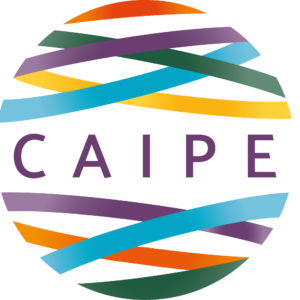About CAIPE
CAIPE is the leading organisation in the UK for Interprofessional Education and Collaborative Practice (IPECP). Established in 1987, CAIPE is a UK-based charity with international outreach whose members (individuals, service users, students and corporate organisations) work together to promote and develop the health and wellbeing of individuals, families and communities through interprofessional education, collaborative practice and related research facilitating the development of a workforce fit for purpose.
It is an independent ‘think tank’, accountable and responsible for its actions, dependent on funding from members’ subscriptions and income generation. It aspires to be a national and international authoritative voice respected equally by governments, academia and in the workplace.
CAIPE in 1997 initially defined Interprofessional Education as: occasions when two or more professions learn together with the objective of cultivating collaborative practice (CAIPE Bulletin Nos 13 1997 go to page 19). In 2002 the definition was amended to: “occasions when two or more professions learn with, from and about each other to improve collaboration and the quality of care" (download). Extending CAIPE’s definition we recognise interprofessional education as occasions when members or students of two or more professions learn with, from and about each other to improve collaboration and the quality of care and services (Statement of Purpose CAIPE 2016). Applying that definition, CAIPE works to improve quality in education, practice and the organisation and delivery of health and social care services:
- Working with statutory and independent, professional and regulatory bodies locally, nationally and internationally;
- Assembling and disseminating information;
- Running conferences and workshops;
- Offering consultancies.
CAIPE supports students, educators, practitioners, researchers and users of services inviting those who opt to be its members (individuals, services users, students or corporate organisations) to:
- Engage in mutual support;
- Access online interprofessional national and international resources through publications, including the Journal of Interprofessional of Care;
- Contribute to CAIPE’s work through its Working Groups;
- Respond with CAIPE to opportunities to influence policy and practice;
- Access funding opportunities.
CAIPE works with likeminded organisations to further these objectives at home and abroad (see). It is one of a growing number of networks confederating in Interprofessional.Global (IP.G) which subscribes to the same ideals worldwide and oversees the biennial All Together Better Health (ATBH) conferences see.
CAIPE commends the following values where interprofessional education and collaborative practice:
- Focuses on the needs of individuals, families and communities to improve their quality of care, health outcomes and wellbeing;
- Applies equal opportunities within and between the professions and all with whom they learn and work;
- Respects individuality, difference and diversity within and between the professions and all with whom they learn and work;
- Sustains the identity and expertise of each profession;
- Promotes parity between professions in the learning environment;
- Instils interprofessional values and perspectives throughout uniprofessional and multiprofessional learning.
CAIPE (2011) Principles of Interprofessional Education (Barr, H. & Low, H.)
CAIPE honours these ideals by:
- respecting and valuing all who learn together;
- striving for excellence in collaborative education, research and practice;
- contributing to vibrant communities of practice;
- furthering innovation, creativity and diversity;
- empowering its members to bring about change.
What is interprofessional education?
The CAIPE Definition of Interprofessional Education
One of CAIPE’s most significant contributions to Interprofessional Education (IPE) and a lasting influence on the development of IPE worldwide, is its definition of IPE. Initially the definition put forward by CAIPE focussed on the purpose of IPE, to differentiate / distinguish it from multiprofessional education, and also to clarify the meaning of IPE. Until 1997, a number of terms were being used interchangeably, such as shared learning, common learning, multiprofessional learning and with different interpretations and for different reasons.
Discussion regarding the need for clarification was first published in the CAIPE Bulletin (13 Summer 1997) and the following definition was proposed.
‘Occasions when two or more professions learn together with the object of cultivating collaborative practice’
Although there is no recorded discussion about the change (that I can find), it was revised later in the same year to
Occasions when two or more professions learn from and about each other to improve collaboration and the quality of care (CAIPE 1997 revised - in Barr 2002)
This was the definition used by CAIPE until 2002 and clearly differentiated it from multiprofessional education which was defined as Occasions when two or more professions learn together for whatever reason) (Barr 2002)
In 2001, the definition was underpinned by the publication of CAIPE’s Principles of Interprofessional Education ( CAIPE 2001). These were published as a separate paper to guide the provision and commissioning of IPE and to assist in its development and evaluation; also in order to protect and promote the distinctive qualities of interprofessional education at a time when IPE was being integrated into mainstream professional and vocational education. The principles drew on the IPE literature, evidence base, and the experience of CAIPE members, underpinned by values common to all care professionals including a commitment to equal opportunities and a positive regard for difference, diversity and individuality.
However, within CAIPE it was felt that the definition was still not specific enough. ‘Learning from and about one another’ often enabled teaching / learning strategies 2 2 such the use of didactic lectures by a member of one profession to students from a different profession to be called interprofessional education. These did not ensure the interaction between the students / members of different professions necessary for interprofessional learning (source, HL’s personal notes and recollections of discussions and emails with Board members).
In 2002, the definition was again revised to include the word ‘with’
Interprofessional Education occurs when two or more professions learn with, from and about each other to improve collaboration and the quality of care. (Barr 2002)
In 2006, in response to numerous requests over the previous year, CAIPE re – issued the Definition and its Principles of Interprofessional Education statement, together with a revised commentary.
This included an additional statement which clarified that CAIPE used the term Interprofessional Education to include all such learning in academic and work based settings before and after qualification, adopting an inclusive view of ‘professional’. (CAIPE 2006)
The clarity and concision of this definition struck a chord which still resonates today. It has been recognised and generally accepted as the authoritative definition, and is used nationally and internationally. Although organisations and education institutions across the world have on occasion modified it slightly and added to the definition to reflect a particular context and situation, it is frequently referenced as being based on CAIPE’s definition and is in essence that definition.
References
Barr, H (2002) Multiprofessional Education, A Definition. Occasional Paper No 1 Interprofessional Education Today, Yesterday and Tomorrow, pg. 6 . London. LTSN for Health Sciences and Practice
CAIPE (1997) a Definition, Interprofessional Education. Bulletin no.13 Summer, London. CAIPE
CAIPE (1997 revised) Interprofessional Education, A Definition cited in Barr (2002) Occasional Paper No 1 Interprofessional Education Today, Yesterday and Tomorrow, pg. 6 . London. LTSN for Health Sciences and Practice 3 3
CAIPE (2001) Principles of Interprofessional Education. London. CAIPE
CAIPE (2006) Statement on the Definition and Principles of Interprofessional education (re issued) Bulletin no 26 Autumn. CAIPE
Helena Low
Former CAIPE Vice Chair
July 2023
CAIPE Mission Statement
“CAIPE is a scholarly organisation that works nationally and internationally to generate, synthesise and translate the evidence base for best practice in interprofessional education (IPE) and collaborative practice (CP). It does this in order to influence health and social care policy for the improvement of health outcomes for all.”
CAIPE VALUES and Professional Conduct
Core values:
CAIPE will instil the following interprofessional values and perspectives in all their activities.
- Ensure high standards of academic rigour in all its scholarly activity.
- Pursue evidence for best practice in IPE and CP through open-minded
- Facilitate the dissemination of best evidence for IPE and CP to universities and health and care organisations.
- Demonstrate leadership of IPE and CP through integrity, honesty, and transparency
- Seek to improve the care offered to patients, carers/families and communities through progressing IPE and CP
- Embrace and work to ensure that anti-discriminatory practice is integral to all CAIPE’s work
The CAIPE board and members will:
- Act in the best interest of CAIPE at all times, bearing in mind its constitution as a Charitable Incorporated Organisation.
- Create and sustain a diverse and inclusive CAIPE board and membership which is based on mutual respect.
- Role model best practice in collaborative working through active listening, acknowledgement of different perspectives, courteous and considerate communication and constructive problem solving.
- Further CAIPE’s mission through active involvement in strategy development, projects, working groups, consultations, and other relevant activities.
- Advocate for the wider dissemination of the work of CAIPE.
CAIPE decision-making
CAIPE members will:
- Ensure principles of inclusivity are upheld when agreeing new strategy, policy, and processes for CAIPE.
- Recognise that decisions are reached through inclusive debate, discussion, and open dialogue.
- Promote open sharing for dialogue and discourse to understand and clarify concepts when seeking to make decisions on behalf of CAIPE.
Working with patients, families, carers and communities
- Involve patients, carers, families and communities in the work of CAIPE
- Respect and uphold the values of patients, and those caring for them
- Listen to patients, carers, families and communities as we learn with, from and about them
Interprofessional research, education and practice
- Seek and embrace new knowledge and expertise in the fields of IPE and CP.
- Promote collaboration and integrated working across health and social care, to improve the quality of care and outcomes for all.
- Respect individuality, difference, and diversity within and between professional groups.
- Apply equal opportunities within and between professional groups.
Partnerships
- Work in partnership with relevant stakeholders, in order to stimulate and expand IPE and CP.
- Share knowledge and best practice with stakeholders, drawing on others’ expertise and creating networks to develop new ideas.
- Encourage student leadership of IPE in order to grow the next generation of collaborative practitioners.
GLOSSARY OF TERMS USED
Best Evidence
Best evidence, as applied in this document, can be derived from practice or research.
Community
Community refers to populations with a common theme such as people living in inner city or rural settings; specific groups who experience a health or social care need, for example, homeless people, people with a similar diagnosis; groups with the same protected characteristics or socioeconomic backgrounds.
Patient
The term patient is used throughout this document, but we acknowledge that other terms such as service user and client are preferred in some health and social care settings.
The CAIPE Board 2023 - 2024
PRESIDENT
Hugh Barr, MPhil, Ph.D., Hon DSc

Employment: CAIPE President
Qualifications: Mphil, PhD
Awards: Hon. DSc (3) (Kingston, UEA and Southampton); Hon Fellow (Westminster)
Summary Statement:
In active retirement, supports the CAIPE co-Chair and Board regarding policy and developments.
Responds readily to enquiries regarding interprofessional education and practice past and present insofar as he is able.
JOINT CAIPE CHAIR
July 2021 -ongoing
Professor Elizabeth (Liz) Anderson PhD
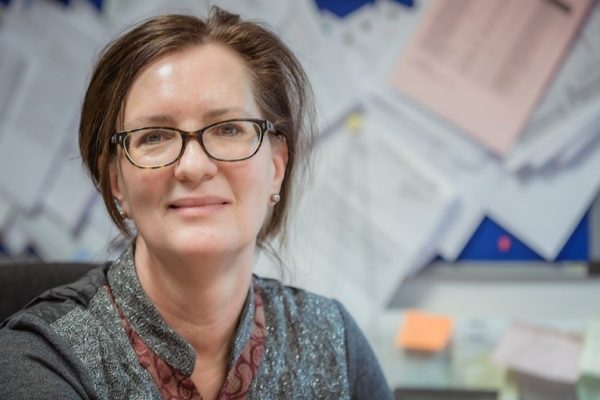
Employment: Professor of Interprofessional Education and Lead for Patient Safety; Leicester Medical School, George Davies Centre for Medicine, University Road, Leicester, LE1 7RH. esa1@le.ac.uk
Qualifications: SRN, SCM, HV, BSc. (Hons), PhD, PGC in HE.
Awards: University Teaching Fellow 2005; National Teaching Fellow, 2007; Senior Fellow Higher Education Academy 2012; CAIPE Fellow 2016
Summary Statement:
Following a clinical career as a nurse, midwife and Health Visitor, Elizabeth has become a highly experienced teacher and scholar, particularly in the field of interprofessional education (IPE). She has built a national and international reputation of publications over the past twenty years. She led the incorporation of IPE into the Leicester medical curriculum bringing together three Higher Education Institutions. She Chairs the University Patient and Carer Group and continues to propel patient involvement which is closely aligned with IPE. She also leads research in patient safety and mindfulness. She began working with CAIPE in 2000 as a co-opted board member and has continued to support the CAIPE community as an elected board member and more recently as a CAIPE Fellow. She will now lead CAIPE following the principles of collaborative leadership with Dr Angela Lennox.
Dr Angela Lennox CBE DL
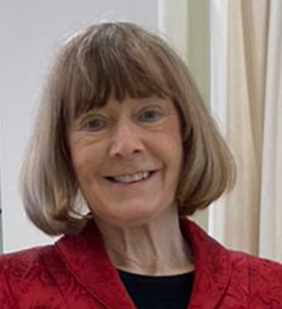
Employment: General Practitioner; Deputy Medical Director NHS England and Improvement (London) and Honorary Visiting Senior Clinical Fellow, University of Leicester; Leicester Medical School, George Davies Centre for Medicine, University Road, Leicester, LE1 7RH. E: AL421@le.ac.uk
Qualifications: MBBS, MRCGP, FRCP.
Awards: MBE, CBE, DL.
Summary Statement:
Dr Lennox has worked in the NHS for the past 40 years as a General Medical Practitioner and entrepreneur who pioneered the development of multiagency health and social care centres. She has worked extensively in senior medical leadership positions and was an advisor to a former Secretary of State for Health, as well as an Associate Director of Primary Care for the Department of Health. She currently fulfils a number of roles in the NHS and third sector leading on clinical governance, quality assurance and performance. Additionally, she was a Senior Lecturer in the University of Leicester where in 1996 she pioneered a model of inter-professional education for all healthcare staff. Dr Lennox is currently a Medical Director in NHS England and Improvement, as well as a Trustee for the national homeless charity - Homeless Link.
In 1999 Angela was awarded the MBE for Services to Medicine and the Community; in 2001 she was appointed Deputy Lieutenant of Leicestershire and in 2008 she was awarded the CBE for Services to Healthcare.
TREASURER
Pat Bluteau MA, BA(Hons), RMN, PGCert Research & Evaluation, Cert Ed, Dip Counselling. FHEA, MBACP
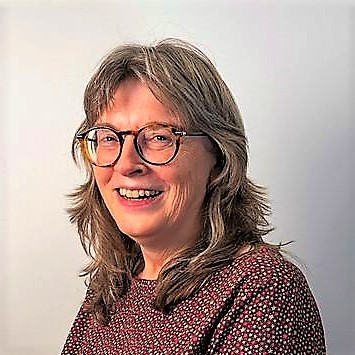
Pat is an Associate Head of School – Quality & Accreditation in the School of Nursing, Midwifery & Health, Faculty of Health and Life Sciences, at Coventry University. She joined the CAIPE Board in 2013 and was appointed Treasurer in 2017. Pat has been actively involving in leading IPE at Coventry University since 2002. During her time with CAIPE Pat has served on the following CAIPE groups: Student, Service User & Carer, Marketing & Promotion, and is currently active in the IPE national standards.
Her IPE research interests concentrate on the challenges and opportunities of designing, developing, implementing, and evaluating interprofessional education in pre-registration health and social care professional courses, online interprofessional education, digital resilience, practice based interprofessional activity and discourse analysis.
BOARD MEMBERS
Melissa Owens
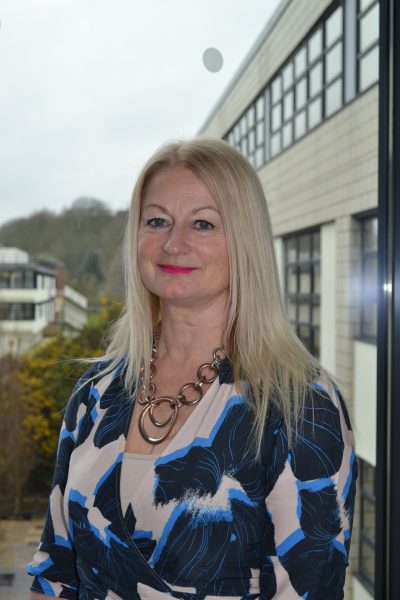
Employment:
University of York
Qualifications:
Doctorate of Education; Post Grad Cert in Research Studies; BA (Hons) RN:LD
Summary Statement:
Doctor Melissa Owens is a senior lecturer at the University of York and the subject lead for nursing. She has a particular interest in interprofessional eduction (IPE), which was the focus of her Doctorate. She has also undertaken a number of research studies relating to IPE and published in the field. Melissa is a Board member of CAIPE and currently co-leads on their Priority Group of Faculty Development.
Emma Pope
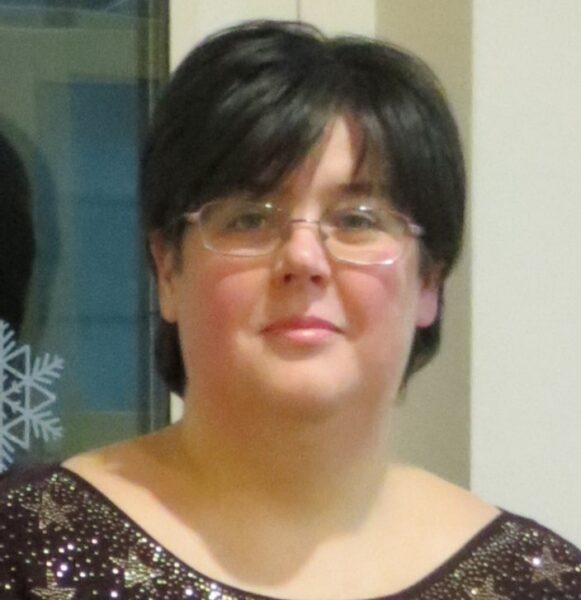
Employment:
Lecturer Radiotherapy & Oncology Programme, Cardiff University
Qualifications:
BSc (Hons) Radiography; MSc Radiotherapy & Oncology; Fellow of the Higher Education Academy (FHEA)
Summary Statement:
Emma is the IPE lead for the School of Healthcare Sciences at Cardiff University. Alongside this, she is also the Programme Manager for the BSc (Hons) Radiotherapy & Oncology Programme also at Cardiff University.
Emma’s main focus is in teaching and learning, and she has a particular interest in the discourse associated with IPE. Her current IPE role involves overseeing over 1,000 students across nine disciplines within allied health, nursing and midwifery. This will grow over the next few years to include IPE collaboration with the School of Dentistry at Cardiff University. Emma has been CAIPE Board Member since 2020. As a CAIPE Board member, Emma is engaged in the CAIPE Workshops and Consultancy; Research and Welsh representation.
Suzy Plows
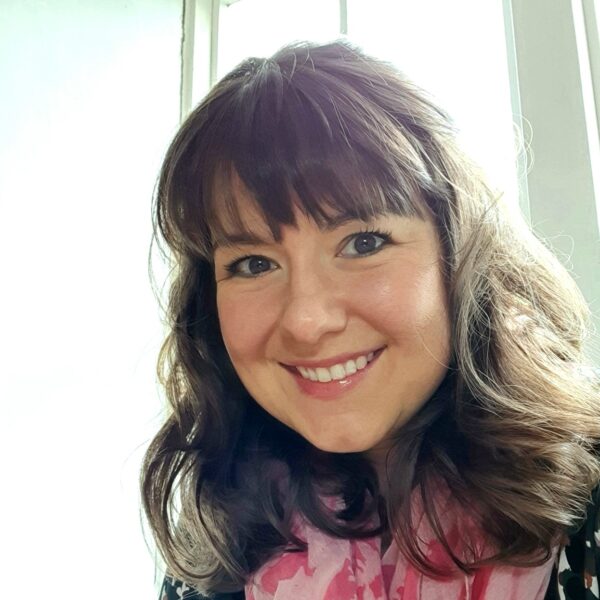
Employment:
Manager, Centre for Interprofessional Education and Learning, University of Nottingham
Qualifications:
Master of Public Health; PgCert, Health Policy; B.A., Anthropology
Summary Statement:
Suzy is the Manager of the Centre for Interprofessional Education and Learning (CIEL) at the University of Nottingham. Her background is in public health, health policy and anthropology, and she has spent the last two decades working in higher education.
Suzy is the co-lead of the Translation of Evidence into Practice priority group and is a member of the Interprofessional.Global Communication Working Group.
Vikki ParkPhD., PG Dip., PG Cert., BSc (Hons), FHEA, HEA Mentor, RN, RNT.

Employment:
Assistant Professor in Nursing and IPECP, and Faculty Lead for IPE, at Northumbria University.
Qualifications:
Doctor of Philosophy., Post Graduate Diploma., Post Graduate Certificate., Bachelor of Science with Honours, Registered Nurse, Registered Nurse Teacher.
Awards:
Fellow of the Higher Education Academy
Summary Statement:
Vikki's healthcare career began in 1999 and she has worked in education since 2010. Currently employed as Assistant Professor for Nursing and Interprofessional Education and Collaborative Practice at Northumbria University, UK, she has an IPE Faculty Leadership role. Vikki is an NMC registered nurse and NMC registered nurse teacher with professional expertise in adult critical care, interprofessional education, and simulation.
Vikki is passionate about interprofessional collaboration, learning and education, with doctoral study in this field. She has experience leading, designing, facilitating, and evaluating interprofessional education for large groups of students in higher education.
Vikki was elected to the CAIPE National Board in July 2021. International leadership roles include co-chair of the CAIPE Research Priority Group, and co-chair of the IPR.Global Communications Working Group and Steering Group member.
Vikki's research interests focus upon interprofessional learning, particularly within critical care and aligned to continual professional development of healthcare practitioners. Principal areas of scholarly interest include simulation-based education, patient safety, human factors, communication, interpersonal skills, and clinical skills development. For doctoral supervision or examination, Vikki is on the CAIPE database for IPE expertise. Further information can be found here: www.drvikkipark.com
Alison Power RM, SFHEA, MProfPrac, MSc, PGCTHE, PGCPE
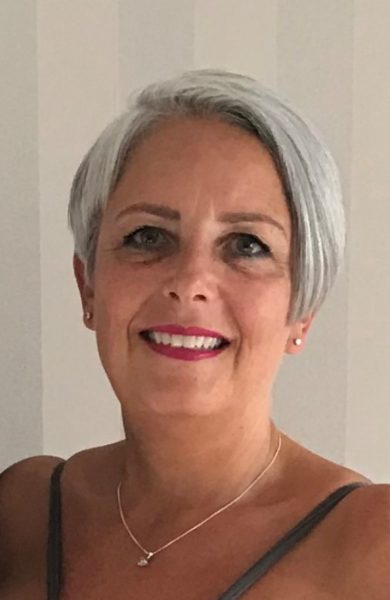
Employment:
Associate Professor (Learning and Teaching); Faculty of Health, Education and Society Lead for Interprofessional Education (IPE); Senior Lecturer (Midwifery)
University of Northampton, Waterside Campus, University Drive, Northampton NN1 5PH
Qualifications:
RM, SFHEA, MProfPrac, MSc, PGCTHE, PGCPE, BSc
Summary Statement:
Alison is an Associate Professor in Learning and Teaching and a Senior Fellow of the Higher Education Academy (SFHEA).
She is a Board Member of the Centre for the Advancement of Interprofessional Education (CAIPE), a UK-based charity which promotes and develops interprofessional education (IPE), research, learning and practice nationally and globally. She also co-leads its Faculty Development Strategy Priority Group. She is an Editorial Board Member of the British Journal of Midwifery; a member of the International Network for Health Workforce Education (INHWE) and an Associate Member of the Association for Learning Technology (ALT).
She has Teacher Status on the Nursing and Midwifery Council (NMC) register and has a particular interest in Interprofessional Education (IPE). As Faculty Lead for IPECP she co-ordinates the IPE ‘collaborative curriculum’ for 16 health, education and social care programmes. She champions the judicious use of technology in learning and teaching and has presented internationally on the University’s Active Blended Learning (ABL) pedagogical approach.
Dr Sharron Blumenthal
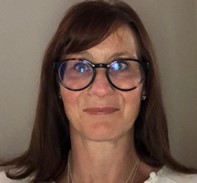
Employment:
Strategic Lead for Interprofessional Education; Glasgow Caledonian University
Qualifications:
Graduate Diploma Physiotherapy, MSc Rehabilitation, Professional Doctorate
Awards:
FHEA, SFHEA
Summary Statement:
Sharron is a Physiotherapist by background. She moved into education in 1997 becoming an associate lecturer at Keele University. Sharron has worked at Glasgow Caledonian University since 2005 and her current roles are that of Senior Lecturer in Physiotherapy and Strategic Lead for Interprofessional Education (IPE). Sharron comes from a clinical background that embedded interprofessional collaboration at its core and she has contributed to two interprofessionally developed clinical guidelines around Non-invasive Ventilation (Baudouin et al, 2002) and The Management of the Spontaneously Breathing Adult (Bott et al, 2009), both published in Thorax.
Sharron has held a number of roles whilst at GCU, including that of Associate Dean International. She has been involved in the development and delivery of interprofessional education within the University for the past 19 years including the delivery and assessment of interprofessional education at GCU. she has been an IPE module lead, IPE lead for Allied Health and Social Work and took up the IPE Strategic Lead role in December 2023. The current credit rated IPE framework at GCU runs across two universities and has 15 different health and social care professions within it. 4000 students move through the framework each year. Sharron’s current role relates to the operational leadership of the framework. Additionally, she is leading the IPE framework review pending completion in 2024.
Sharron’s Doctoral research involved the development of the Interprofessional Education Academic Behavioural Confidence Scale (Blumenthal et al, 2021). Sharron has a number of doctoral students, whose research relates to IPE and she has presented at a number of national and international conferences, including All Together Better Health. Sharron was a member of the development team for the inaugural Scottish Health and Social Care Team Challenge (SHSCTC) in 2014, and successfully co-led the second SHSCTC at Glasgow Caledonian University in April 2016.
Professor Richard Kyle, MA(Hons), PGCAP, PhD, FRGS, FRSPH, SFHEA
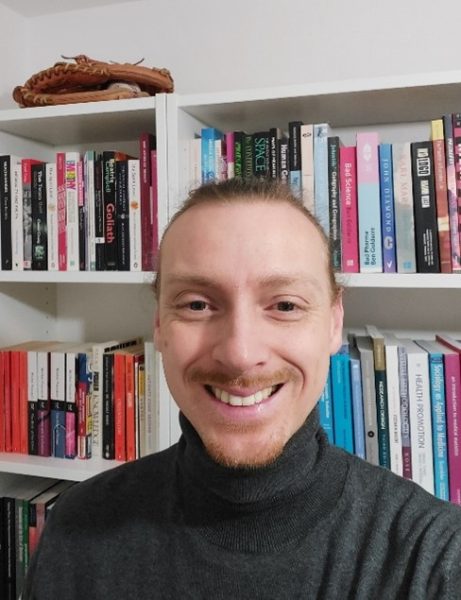
Employment:
University of Exeter
Qualifications:
MA(Hons), PGCAP, PhD
Awards:
Senior Fellow Higher Education Academy (SFHEA), Fellow, Royal Geographical Society (FRGS), Fellow, Royal Society of Public Health (FRSPH)
Summary Statement:
Richard is Professor of Interprofessional Education and Interim Head of the Academy of Nursing at the University of Exeter, and a Visiting Professor at the University of the Highlands and Islands. He has over 15 years’ experience in higher education, having previously held academic positions at the Universities of Glasgow (2005-2006), Lancaster (2006-2007), Manchester (2008-2010), Stirling (2010-2014) and Edinburgh Napier (2015-2020). Richard has developed and evaluated pioneering drama-based educational approaches to illustrate the complexities of interprofessional working in healthcare. His pedagogical innovations have received a Scottish Education Award and recognition as a Student Nursing Times Awards finalist for ‘Partnership of the Year’ and ‘Teaching Innovation of the Year’. Richard is also an accomplished researcher and publishes widely across the fields of healthcare professional education, nursing, public health, and the social sciences. As a mixed methodologist, he has expertise in a range of quantitative and qualitative research designs, including data linkage and analysis of routinely collected data, cluster randomised controlled trials, and co-design and evaluation of educational and psychosocial interventions in young people and adults. Richard has held senior leadership positions in higher education, charities, and the NHS, where he was Deputy Head of Research and Evaluation at Public Health Wales (2020-2021).
University of Exeter: Staff Profile
X (Twitter): @richardgkyle
Mark Dexter

Employment:
General Medical Council (GMC)
Mark is an experienced policy maker with over 35 years’ experience of working in government, regulatory and international bodies. In his current role as Head of Strategic Policy for Education at the General Medical Council (GMC), he has led key developments, including a professional skills framework for postgraduate training (now embedded in curricula for 65 medical specialties), a major review to increase flexibility in postgraduate training pathways, and the response to several national service priorities, for example end of life care and people with eating disorders. In terms of effective and safe care, all these areas have a common thread to the extent they require an interprofessional approach to learning and working.
The early part of Mark’s career in the Department of Health was spent working on policy designed to improve healthcare for children, people with mental illness and those who are homeless. He also spent 3 years working in the office of the UK Secretary of State for Health. Mark’s entry to the world of medical education was in the early 2000s with a secondment from the Department of Health to the then Specialist Training Authority, to head up the Office of the Director of Appeals. He subsequently joined the Postgraduate Medical Education and Training Board as Head of Policy in 2005 and worked closely with Board members on ground-breaking work to establish standards for postgraduate training and separate standards for - and a major review of - all postgraduate curricula. Mark transferred to the GMC in 2010.
In 2020, Mark was seconded to the World Federation for Medical Education (WFME’s) as Senior Policy Adviser to undertake a comprehensive review of the organisation’s functions. In his final report, presented to and endorsed by WFME’s Executive Council in early 2022, Mark made over 50 recommendations covering: a programme of continuous improvement to support the WFME’s Recognition Programme; new arrangements for governance and finance; and plans to strengthen international collaboration, innovation, and longer-term income generation.
Mark describes his various roles as having provided a privileged insight to the work health professionals do, but also the scope to help drive improvements in the way they are supported - both to deliver effective, safe care and as part of their career development. In this context, and the opportunities for interprofessional learning emerging in wider plans for workforce development and the harmonisation of health regulators, he is keen to contribute to the delivery of CAIPE’s five-year strategy.
Dr Aoife Fleming
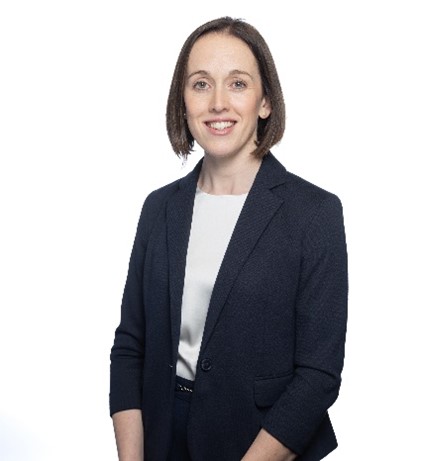
Employment:
Senior Lecturer in Clinical Pharmacy, School of Pharmacy and Vice Head for Interprofessional Learning, College of Medicine and Health, University College Cork, Cork, Ireland.
Qualifications:
BScPharm, MSc. Clinical Pharmacy, PhD, Diploma TLHE, Registered Pharmacist MPSI.
Summary Statement:
https://research.ucc.ie/profiles/C019/afleming
Aoife is a registered Pharmacist, with experience in hospital, community and regulatory pharmacy before moving into research and higher education in 2011. Aoife is a Senior Lecturer in Clinical Pharmacy and the Vice Head for Interprofessional Learning (IPL) in the College of Medicine and Health in UCC. She chairs the College IPL Development Committee which oversees Interprofessional Education and Learning for students across a range of healthcare programmes. Aoife has a passion for developing student confidence and competence to prepare them for future practice, and for including the patient voice and lived experience into IPL. She has driven a dynamic and innovative programme of IPL for students across all disciplines in the College. She is an active member of the All Ireland Interprofessional Healthcare Challenge (AIPEC) national steering group and works with colleagues in eight Universities across the island of Ireland to organise this annual event. AIPEC is an intervarsity student challenge which provides an extracurricular opportunity for health and social care students to develop their collaboration and team-working skills. Aoife has publications and research expertise in the areas of medication safety, antimicrobial stewardship, vaccination uptake and supervises a number of doctoral candidates and researchers in these areas. She has expertise in mixed methods and qualitative research and has also been awarded funding and published research in the area of interprofessional learning and collaboration.
Veronica O'Carroll:
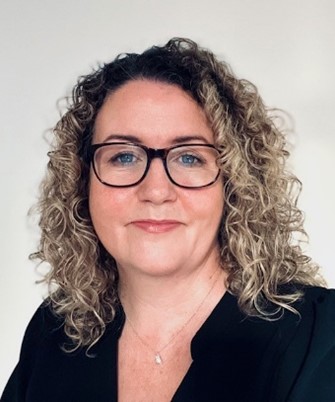
Employment:
Senior Lecturer and Registered Nurse (Adult) in the School of Medicine, University of St Andrews
Qualifications:
PhD, MSc, PGCertHE, BA (Hons), RGN
Awards:
SFHEA
Summary Statement:
Since 2009, she has been involved in the design and implementation of interprofessional education (IPE) and interprofessional research in the academic and practice learning environment. Veronica supervises and examines MSc PhD/MD Prof Doc dissertations and theses related to interprofessional education and interprofessional collaboration. She is an Associate Editor for the Journal of Interprofessional Care.
Dr Sivaram Shanmugam

Employment:
Senior Lecturer, Department of Physiotherapy & Paramedicine, School of Health and Life Sciences, Glasgow Caledonian University, Glasgow, G4 0BA Scotland. sivaram.shanmugam@gcu.ac.uk
Qualifications:
PhD, MSc, PgC LTHE, BPT
Awards:
SFHEA, AdvanceHE Collaborate Award for Teaching Excellence 2020
Summary Statement:
Dr Shiv Shanmugam is a Senior Lecturer in the Department of Physiotherapy and Paramedicine. He is founding Programme Director for an innovative integrated preregistration physiotherapy doctorate programme, the first of its kind in Europe. Shiv is also the Department’s Learning & Teaching Adviser.
Shiv gained a Bachelors’ in Physiotherapy at Christian Medical College and Hospital, Vellore, India where he graduated with the Steve Kolumban Memorial Gold Medal for the best all round student and stayed on to work as a Clinical Academic at the Rehabilitation Institute. He has previously worked as a Lecturer in Physiotherapy at Queen Margaret University before moving to Glasgow Caledonian University.
With his current administrative roles, Shiv is also the University’s Vice-Chair of the assessment regulations sub-committee and Chair of the Anti-Racism Curriculum Group. He also leads the Education Research Group within the School of Health and Life Sciences, a collective dedicated to pioneering educational enhancement, innovation, and impactful research. The group has grown to a remarkable 65 individuals from within and beyond school.
He teaches on the masters and doctoral level interprofessional module and has doctoral completions on validation of a collaborative practice measurement tool for integrated community teams.
Shiv serves as a Non-Executive Director and Board Member at a Third Sector Educational Company, delivering Family and Systemic Therapy in Scotland and the North of England. Additionally, he holds a Lay Advisor role at the Royal College of Physicians and Surgeons of Glasgow, and Trustee for the Chartered Society of Physiotherapy’s Charitable Trust.
Federico Farini
Employment:
Lead at the interdisciplinary Centre for Psychological and Sociological Sciences at the University of Northampton
Qualifications:
Ph.D. in Sociology (University of Modena and Reggio Emilia, 2008), MA in Anthropology (University of Modena and Reggio Emilia, 2005) and a second MA in History (University of Bologna, 2002).
Awards:
Summary Statement:
Federico Farini's background is rooted in Social Sciences, with a
For many years, he has been leading national and international projects in the fields of Sociology of Intercultural Communication, Cultural Sociology, Globalization Theories, Social Theory, Communication Studies, Sociology of Education, Youth and Childhood studies, Policy evaluation. Other areas of expertise concern Equality and Social Justice in access to education and healthcare. His research is characterised by an interdisciplinary approach at the service of positive impact on the lives of stakeholders and communities that characterises. Federico’s current research concerns the inclusion of migrant children and young people in education, youth subcultures, cultural studies, migrant-friendly services, intercultural education. A recent volume edited with Angela Scollan (Middlesex University), 'Self-determination of children in Early Childhood Education and Services', was recognised in 2021 as a top resource to promote the UN Sustainable Development Goal 4, 'quality education' with more than 12,000 downloads.
Federico is a Visiting Professor in Research Methods at the University of Modena and Reggio Emilia, where he is also a member of the PhD School. He collaborates with the International Post-Doc programs at the University of Venice “Ca' Foscari” and as an expert reviewer for UNESCO, the European Union and several national funding bodies.
PRESIDENT
Hugh Barr, MPhil, Ph.D., Hon DSc

CO-CHAIRS
Dr Angela Lennox

Professor Elizabeth Anderson

TEAM MEMBERS
Susanne Lindqvist
![]()
Sharon Buckley
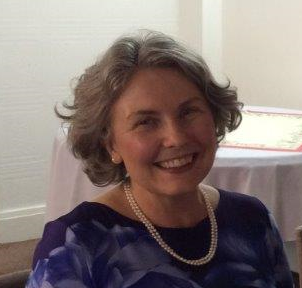
Dawne Gurbutt
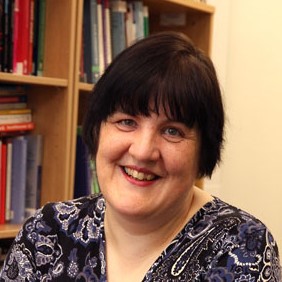
Pat Bluteau
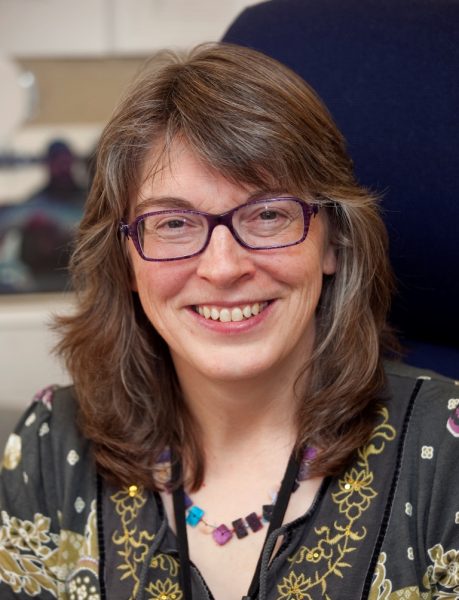
The Award of the title 'Honorary Fellow' of the Centre for the Advancement of Interprofessional Education
At the CAIPE Board meeting in February 2016 it was agreed to offer the Award of CAIPE Honorary Fellow.
This a prestigious title awarded to an individual who is a CAIPE member and has made significant and outstanding contributions to IPE, collaborative working and the organisation of CAIPE. It is awarded in anticipation that the individual will continue with on-going activity with and for CAIPE as long as they remain a CAIPE member.
The title of Honorary Fellow is awarded by the CAIPE Board on the recommendation of a specifically appointed panel for the purpose (Nomination Committee). This committee will consider applications that are supported by nomination by two members of CAIPE and the presentation by the nominee of supplementary evidence of meeting the award criteria.
Guidance on process and procedure for the award of the title 'Honorary Fellow' of the Centre for the Advancement of Interprofessional Education can be found below. This is followed by general information on the nomination of Honorary Fellows.
Honorary Fellowship Application and Nomination Form
CAIPE Honorary Fellow Award Policy
Current CAIPE Fellows
Liz Anderson

Elizabeth Anderson is Professor of Interprofessional Education at Leicester Medical School where she is also lead for patient safety. After completing a graduate nursing course at St Bartholomew’s Hospital London, she moved to Leicester where she worked as a Midwife and Health Visitor. Her PhD on Sudden Infant Death syndrome, led her into an NHS Trust research post where she explored service design for disadvantaged marginalised populations. Elizabeth moved from health care research to scholarship in Medical Education where she led innovative practice-based educational interventions, underpinned with theoretical insights. She served on the Board for the Disability Partnership, ‘The Prince of Wales Advisory Group on Disability’ while supporting education on disability awareness. She has also served on the Board for the UK Centre for the Advancement of Interprofessional Education and in 2016, she was awarded a CAIPE Fellowship for her contributions to interprofessional learning (IPL). Elizabeth was awarded a National Teaching Fellowship by the Higher Education Academy for outstanding contributions to education in 2007. She is widely published in the area of IPL in practice. She continues to develop placement interprofessional learning opportunities recently in a new integrated care module. She advocated for patient involvement and runs a Patient and Carer Group to align patient involvement in the design and delivery of professional education.
Dawne Gurbutt
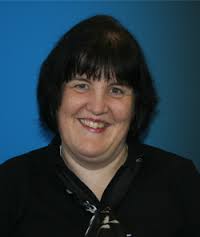
Dawne is Head of Collaborative Education at the University of Central Lancashire. She is based in the Centre of Excellence for Learning and Teaching, and leads on Interprofessional and Interdisciplinary Education across the institution. She has a keen interest in integrated working, collaborative practice and community engagement, which reflects her background as a community practitioner. She joined the CAIPE Board in June 2018 . She is a member of the CAIPE group for Learning and Teaching. Her research interests include : Interprofessional and Interdisciplinary Learning. Technology Enhanced Learning, Narrative research and Service User Engagement.
Richard Gray
Richard Gray has been a member of the CAIPE board, CAIPE executive group and was CAIPE Chair 2013-17. He was privileged to have been awarded a CAIPE Honorary Fellowship in 2018. He is an Honorary Faculty Fellow, University of Brighton.
Richard was a general practitioner in Brighton for many years. He initially was involved with postgraduate medical education having been a GP Tutor, GP trainer and Associate Dean for Postgraduate General Practice Medical Education South East Thames. In 1989 he was awarded FRCGP. He has an MA in Education (University of Sussex) and an EdD (University of Brighton). In 2000 he was awarded an NHS Executive Research Training Fellowship to Johns Hopkins Medical School, Baltimore.
Later he was involved with undergraduate education and was appointed Principal Lecturer in Primary Care and interprofessional disciplinary lead at the Brighton and Sussex Medical School. In this role he was member of the curriculum planning team for the new medical school and was involved in the design and implementation of the undergraduate first and second year clinical practice modules which included IPE involving nursing, midwifery, pharmacy, social work and medical students. In 2010 Richard received an Annual Education Award presented by Department of General Practice Education, KSS Deanery in recognition of regional services to medical education.
More recently, Richard chaired the Steering Group for the Oxford 2016 ATBH VIII conference and following this was appointed Convenor of the Values Based Interprofessional Education and Practice Network at The Collaborating Centre for Values Based Practice, St Catherine's College, Oxford. Richard has also been working with Elizabeth Howkins in developing a series of digital stories relating to IPE which are now available on the CAIPE website. He has worked with Jenny Ford and HEE South in publishing an IPE Handbook to be used in practice (see).
His current interests include: Preparation and support of teachers involved with IPE; Values based interprofessional education and practice; Patient safety; and Collaborative leadership.
Susanne Lindqvist
Susanne is Director of the Centre for Interprofessional Practice (CIPP) and Professor of Interprofessional Practice. She is also Director of Learning and Teaching Quality for Norwich Medical School at the University of East Anglia (UEA). Susanne is since 2016 proud to be a CAIPE Fellow and together with likeminded colleagues work towards a vision where “all professionals put interprofessional practice at the heart of their service by providing integrated and high quality care that is person-centred, compassionate, efficient and safe”.
Susanne joined CIPP in 2002, initially to set up a pilot with healthcare students. The purpose of the initiative was to give students an opportunity to learn with, from and about each other allowing them to develop knowledge, skills, attitudes, values and behaviour that underpin effective interprofessional practice and high quality care. The initial pilot turned out to be a success and as a result she was asked to extend IPL to involve all health and social care students. In 2016-2017 CIPP offered a number of different opportunities of IPL to ~ 3000 students across twelve different professions. From 2017-18 delivery of pre-registration IPL transitioned to schools with Susanne as CIPP Director taking on the role of supporting the ongoing development and quality assurance of the provision of IPL at UEA.
Since 2018, Susanne and CIPP will work with the local Trusts in meeting the increasing needs and expectations of our future healthcare practitioners by promoting networking and innovation in interprofessional practice - in teaching and research. Working together with others both locally, nationally and internationally has been a key ingredient in CIPP’s and Susanne’s approach to finding the best way forward in the joint attempt at providing meaningful opportunities for learning and working together that lead to real improvements in patient/client care. Susanne is currently undertaking a training to become an accredited coach for senior leaders so that she can actively help promote the overall aim of CIPP by supporting people to develop and optimise their leadership skills.
CAIPE is one of a growing number of Regional Networks confederating in Interprofessional.Global (IP.G)which subscribes to the same ideals worldwide and oversees the biennial All Together Better Health (ATBH) conferences.
IP.G facilitates support and exchange between the global interprofessional education and collaborative practice (IPECP) networks, establishes relationships with other like-minded organisations and welcomes and supports new networks sharing the same aims and values.
IP.G Global Café hosts monthly global webinars to encourage and support the exchange of knowledge and experiences in the global community of Interprofessional Education and Collaborative Practice. The normal format is two presentations. Each presentation has 10 minutes followed by a 20 minutes discussion (see).
Interprofessional.Global includes representatives from regional and emerging networks across the world. Regional Networks: Africa (AfrIPEN); Australasia (AIPPEN); Canada (CIHC); India (IndIPEN); Japan (JAIPE and JIPWEN); Scandinavia (NIPNET); South & Central America and Caribbean (REIP); United Kingdom (CAIPE) and United States of America (AIHC). Emerging Networks: Arabic Speaking Countries; Asia Pacific (APIPECnet) and German Speaking Countries (IP-Health). [Click on acronym to access web-site].
Interprofessional.Global oversees promotion and planning for the biennial All Together Better Health (ATBH) conferences hosted by institutions worldwide.

| Full Text Downloads: Apr-Jun 2021 137142 Apr-Jun 2020. 78531 | |
| July 2021 New Impact Factor for the Journal of Interprofessional Care has increased to 2.338. This is their highest score yet. |
Since its launch in 1992 following an initiative by the Centre for the Advancement of Interprofessional Education (CAIPE) the Journal continues in promoting collaboration, practice and research in education, health and social care and related fields worldwide.
The Journal has retained its focus on education, health and social care and encouraged contributions from other fields where closer collaboration is critical to improve the quality of life for individuals, families and communities, and to establish and sustain a healthier environment. These include housing, public health, law enforcement and the treatment of offenders. Contributors and readers include service users, students, teachers, trainers, practitioners, managers, policy makers and researchers.
Given the increasing reach and circulation of the journal during 2021, the publishers have agreed a moderate increase in the journal page allowance. This will allow more papers to be included in each issue, and help reduce waiting times from online publication to print copy. This change is made on the back of a range of success indicators, including a 30% increase in downloads, now averaging 350K/year; and submissions, processing close to a thousand manuscripts/year.
CAIPE values it's continuing partnership with the Journal exploring collaborative practice, learning, working and research with and between professions and organisations and with service users, carers and communities. CAIPE and the Journal treats research as both a collaborative field in its own right and as a means to evaluate IPE and Practice.
CAIPE Membership for Individuals and Corporate Members not only offers access to the CAIPE website and resources, publications, policy development, Working Groups, Symposiums, Regional Forums, discounted conference attendance, and 20% off the Routledge/CAIPE Collaborative Practice series publications, CAIPE membership also offers substantial discount to the Journal of Interprofessional Care
The Values-Based Interprofessional Education and Practice Network
Established following the 2016 ATBH VIII Oxford conference by a working group of representatives from CAIPE, Oxford Brookes University and the Collaborating Centre for Values-Based Practice, Oxford University.
The Network enables communication between members and organisations leading to future research and workshops.
The International Foundation for Integrated Care (IFIC)
A not-for-profit educational network that crosses organisational and professional boundaries to bring people together to advance the science, knowledge and adoption of integrated care policy and practice.
CAIPE and IFIC are working together to promote and provide educational opportunities where interprofessional learning and practice can inform the integration of care as agreed.
Click here to download our partnership agreement.
CAIPE works with likeminded organisations to further these objectives at home and abroad
It is one of a growing number of networks confederating in Interprofessional.Global which subscribes to the same ideals worldwide and oversees the biennial All Together Better Health (ATBH) conferences.
Interprofessional.Global includes representatives from regional and emerging networks across the world. Regional Networks: Africa (AfriPEN); Australasia (AIPPEN); Canada (CIHC); India (IndIPEN); Japan (JAIPE and JIPWEN); Scandinavia (NipNet); South & Central America and Caribbean (REIP); United Kingdom (CAIPE) and United States of America (AIHC). Emerging Networks: Arabic Speaking Countries; Asia Pacific (APIPECnet) and German Speaking Countries (Do.IP).
Interprofessional.Global oversees promotion and planning for the biennial All Together Better Health (ATBH) conferences hosted by institutions worldwide.
